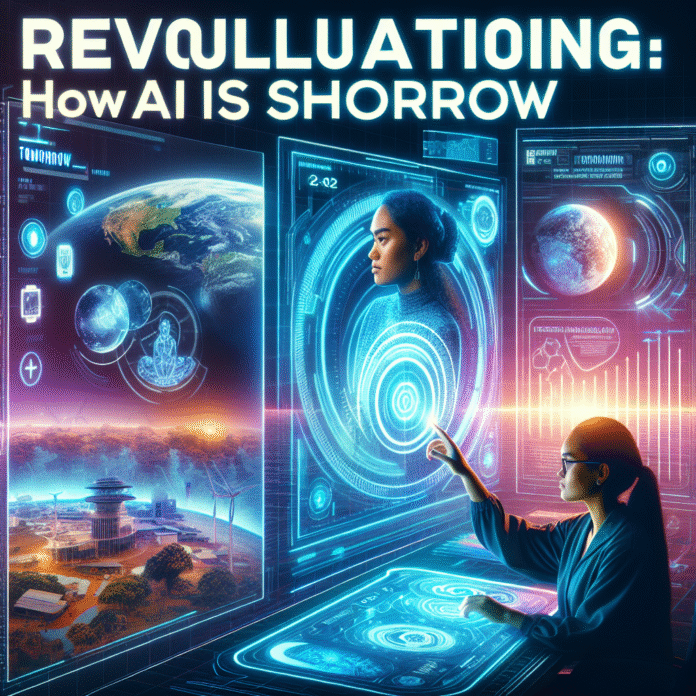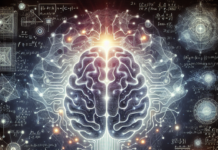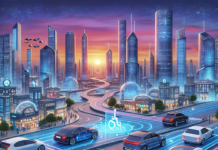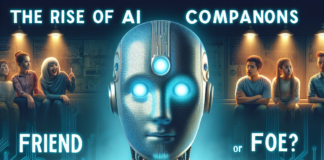Revolutionizing Tomorrow: How AI is Shaping Our Future
In an age where technology evolves at lightning speed, artificial intelligence (AI) stands out as a transformative force, reshaping economies, industries, and our daily lives. As we venture deeper into the 21st century, the implications of AI extend beyond mere automation; it is redefining possibilities and pushing the boundaries of human potential. This article explores how AI is revolutionizing multiple sectors, enhances our decision-making processes, and raises ethical considerations for a balanced future.
The AI Landscape Today
AI isn’t a monolith; it comprises various subfields, such as machine learning, natural language processing, computer vision, and robotics. From self-driving cars to virtual assistants like Siri and Alexa, AI is already an integral part of our everyday interactions. Major corporations such as Google, Amazon, and IBM have invested billions into AI technologies, indicating its potential as a cornerstone of future economic growth.
Transforming Industries
Healthcare
The healthcare sector is one of the most promising arenas for AI applications. AI algorithms analyze vast amounts of medical data, identifying patterns and predicting outcomes with remarkable accuracy. For instance, AI is being used to detect diseases at earlier stages than traditional methods, thereby significantly improving patient outcomes. Moreover, personalized medicine, tailored to individual genetic makeups, is becoming more achievable through AI-enabled data analytics.
Finance
In finance, AI algorithms assess risks and reduce fraud through real-time data analysis. Automated trading systems can outperform human traders by processing information at speeds unattainable by the human brain. Furthermore, AI-driven chatbots are enhancing customer service, providing financial advice, and helping clients manage their investments efficiently.
Education
AI’s role in education is rapidly expanding, offering personalized learning experiences based on students’ strengths and weaknesses. Adaptive learning technologies allow educators to tailor their teaching methods to individual learning styles, fostering a more inclusive and effective educational environment. Additionally, AI supports administrative tasks, freeing teachers to focus on student interaction and curriculum development.
Transportation
The transportation sector is on the cusp of a revolution with the advent of autonomous vehicles, where AI is at the helm. Self-driving technology promises not only to decrease accidents but also to optimize traffic patterns and reduce emissions. AI can analyze real-time traffic data, creating more effective routes that save time and fuel costs.
Enhancing Decision-Making
Decision-making used to be solely a human endeavor, but AI systems have introduced data-driven insights that enhance our choices. By analyzing historical trends and real-time data, AI improves forecasting accuracy, allowing businesses and individuals to make informed decisions. Whether it’s determining inventory levels for a retail store or strategizing market moves, AI’s predictive capabilities are invaluable.
Ethical Considerations
With great power comes great responsibility. As AI continues to shape our future, ethical considerations are paramount. Concerns over data privacy, algorithmic bias, and the potential for job displacement have sparked fierce debates. Companies must ensure transparency and fairness in their AI systems to gain public trust. Ethical considerations are not merely a checkbox; they will define the societal impact of AI in the coming years.
The Future of Work
As AI automates routine tasks, the workforce faces significant shifts. While some jobs may be displaced, new roles will emerge, often requiring advanced skills in technology and data analysis. Upskilling and reskilling will become crucial as employees adapt to this new landscape. Emphasizing lifelong learning will empower the workforce to thrive in tandem with AI advancements.
Conclusion
AI is not just a tool; it has emerged as a catalyst for change, impacting various aspects of life and work. As we stand on the brink of this revolution, the challenge lies in harnessing AI’s potential while addressing ethical concerns. By fostering a culture of innovation, education, and ethical responsibility, we can ensure that AI serves as a powerful ally in revolutionizing tomorrow. The journey is just beginning, and our choices today will shape the future we all share.
More related articles- This revolution is not only about automation and convenience; it’s about reimagining what’s possible for society, industry, and the human experience. As we stand on the edge of a technological frontier, AI is not just shaping our future — it’s actively creating it.







